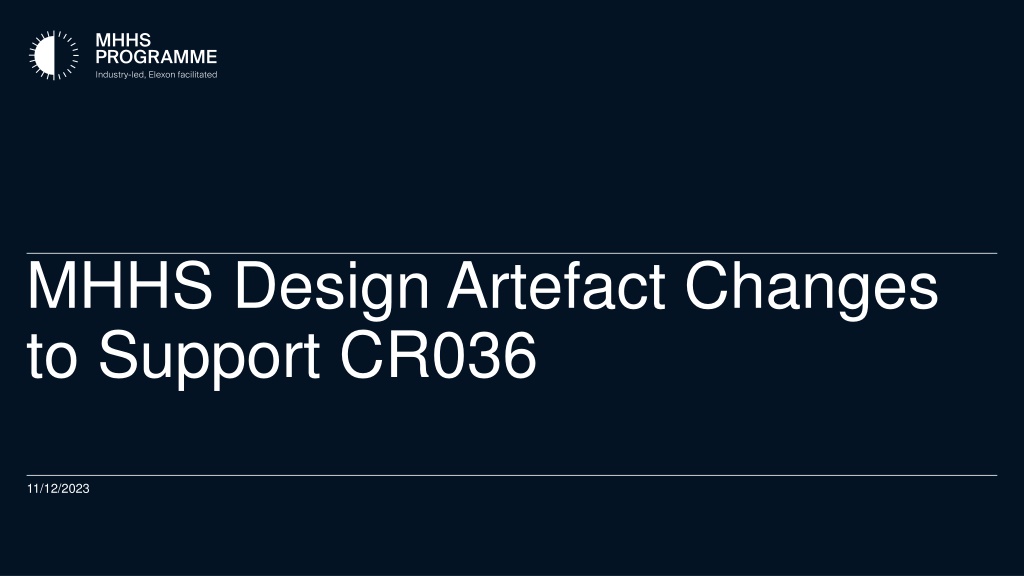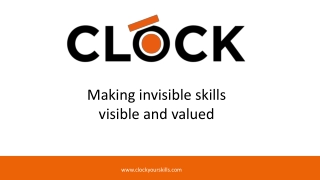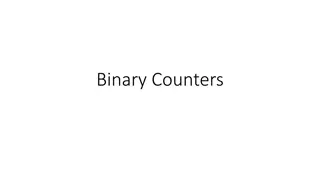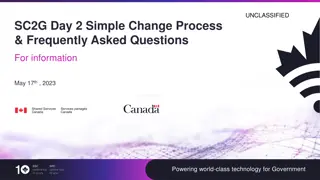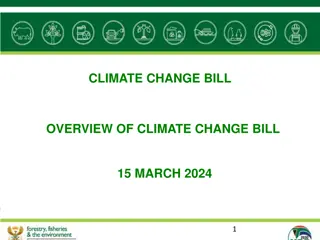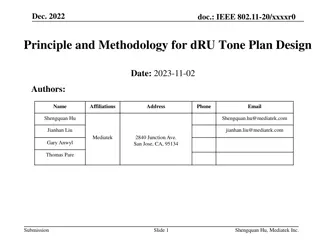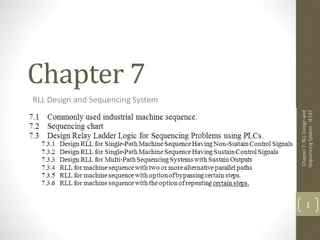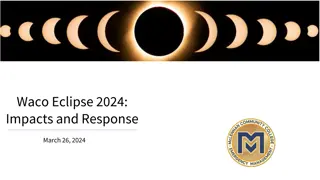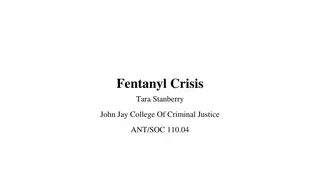Clock Change Impacts on MHHS Design Artefacts for CR036
Detailed redline changes to MHHS Design Artefacts for CR036 related to the use of midnight clock time for appointments and readings. Includes updates to business process maps, data catalogue definitions, and interface catalogue revisions to align with the new requirements.
Download Presentation
Please find below an Image/Link to download the presentation.
The content on the website is provided AS IS for your information and personal use only. It may not be sold, licensed, or shared on other websites without obtaining consent from the author. Download presentation by click this link. If you encounter any issues during the download, it is possible that the publisher has removed the file from their server.
Presentation Transcript
MHHS Design Artefact Changes to Support CR036 11/12/2023
Introduction This document details the redline changes to the MHHSP Design Artefacts associated with CR306 Use of Clock Midnight for Appointments and Reads. 2
Clock Change Design Impacts & Clarifications Business Process Maps The term clock time has been used through this document, however, the terms clock time & local time are interchangeable BP002 & BP003 Service Provider Appointment ~ addition of purple note to confirm that appointments become effective as of Midnight clock time BP003C to be updated as per the DRAFT version of the Business Process Map attached (DEL2077 Draft BP003C to Support CR36) 3
Clock Change Design Impacts & Clarifications Data Catalogue DEFINITION MHHSP Data Item ID DATA ITEM The Date from which next/incoming Metering Service appointment is/was effective. This should be populated with midnight clock time Incoming (Next) Metering Service EffectiveFrom Date DI-824 The Date from which next/incoming Data Service appointment is/was effective. This should be populated with midnight clock time Incoming (Next) Data Service EffectiveFrom Date DI-827 Date at which Supplier would like proposed Metering Service appointment to take effect. This should be populated with midnight clock time Proposed / Prospective MS DIP EffectiveFromDate DI-830 Date at which Supplier would like proposed Data Service appointment to take effect. This should be populated with midnight clock time The date and time in UTC at which a half hourly meter is read. This should be considered to be midnight where an exact time is unavailable The date and time from when a metering service will be responsible for a metering point. Initially assumed to be midnight UTC. Proposed / Prospective DS DIP EffectiveFromDate DI-833 Cumulative Register Reading Date/Time DI-089 Metering Service EffectiveFrom Date DI-061 4
Clock Change Design Impacts & Clarifications Interface Catalogue - Interfaces Revise Validation rules for IF-031 ~ to ensure that Proposed Service Provider Start Time equates to midnight clock time Revise population notes for IF-041 ~ to make it clear that Transfer Readings [only] Date/Time should equate to clock time. IF-037 Block B002 Incoming Supplier Information this would be required for [DSDeApp] event 5
Clock Change Design Impacts & Clarifications Interface Catalogue Registration Notes Add new Section to DES138 Registration Notes ~ Service Provider Appointment Start/End Time The implementation of MHHS Programme CR36 , mandated that Service Provider Appointments should commence at Midnight Local or Midnight Clock Time , so that Data Service and Metering Service appointments, align with the periods of Supplier ownership maintained by CSS (Central Switching Service). This means that, in periods where BST (British Summer Time) is in effect, service provider appointment will commence at 23:00:00 on D-1, where D is the UTC day on which supply ownership begins. However, It should be noted that Data Services will continue to be responsible for collecting/providing consumption data for each full UTC day for which they are appointed i.e. an appointed DS would need to continue to provide consumption data for the hour 23:00 D-1 through to 00:00 D even though they are not technically appointed for that hour. Further information on processes around this arrangement can be found in the following documents: - MHHS-BP003C Transfer of Readings Change of Data Service BPM - MHHS-METH001 - SDS Validation & Estimation Method Statement - MHHS-BRS001 - Data Service Requirements 6
Clock Change Design Impacts & Clarifications Interface Catalogue Registration Notes (cont.) Representations of Time in DIP Messages All DIP DES138 message Date/Time fields are based on ISO-8601, and have the format YYYY-MM-DDTHH:MM.SS TZH:TZM. This format allows for time to be represented in either in terms of UTC, or local time accompanied with the appropriate off-set from UTC. For example, during BST, midnight could be correctly represented either as 2023-07-19T23:00:00.00 00:00 (UTC version) or 2023-07-20T00:00:00.00+01:00 (local/BST version) Whilst no formal restrictions are in place, the preference would be that participants restricted themselves to the use of these representations, rather than utilising non-UK time zones. Data Items other than Service Provider Appointment Start End/Time All other DES138 Date/Times, for example Connection/Energisation/Meter Install/MDR Effective From Dates, can be considered as [to take effect at] Midnight on the relevant UTC day. The MHHS design allows for the implementation of the use of exact times for events at some point in the future. However, under the current design the time element of Effective From data items should ideally be populated as Midnight on the relevant UTC Day; or where a non-midnight time is provided should be deemed to be Midnight on the relevant UTC day, as is the convention under the pre-MHHS processes. 7
Clock Change Design Impacts & Clarifications Appointment Related Requirements (MS & DS) Currently Appointment related Requirements reference the commencement / ending of appointments, based on the receipt and processing of the relevant PUB message, and do not reference a specific time per se However, in order to provide further clarity around the commencement / ending of appointments the following requirements have had the additional information section updated as follows : [Updated] BR-DS-018, BR-DS-030, BR-DS-030.1, BR-DS-030.104 (DS) and BR-MS-005, BR-MS-009, BR-MS-009.1, BR-MS-040 (MS), de-appointment requirements, have been updated to state that all appointments cease to be effective from one second to midnight clock time i.e. 23:59:59 [Updated] BR-DS-002, BR-DS-003, BR-DS-013, BR-DS-029 BR-DS-029.1 (DS) and BR-MS-007, BR-MS-008, BR-MS-008.1, BR-MS- 030 (MS), appointment requirements, have been updated to state that all appointments become effective at midnight clock time i.e. 00:00:00 Appointment Related Requirements (Registration Service) [NEW] BR-RS-004.3, ~ Registration Service must ensure that all Service Provider appointments take effect at midnight clock time, and de-appointments take effect at one second to midnight clock time ie. 23:59:59 8
Clock Change Design Impacts & Clarifications Splitting of Consumption Data on COS Day, during BST only (Data Service) [New] BR-DS-094.3 ~ Data Service must, as a result of a de-appointment, split Consumption Data on the day of their de-appointment during British Summer Time into two separate IF-021 messages. The Consumption Data for the settlement periods prior to the de- appointment date/time should be shared with the Outgoing Supplier. Consumption Data between the de-appointment date/time and the end of the UTC Settlement day should be shared with the Incoming Supplier and Incoming Data Service as notified within the IF-037 de-appointment message. [New] BR-DS-094.4 ~ ADS must, as a result of a de-appointment, split Reactive Data on the Day of their de-appointment during British Summer Time into two separate IF-021 messages. The Reactive Data for the settlement periods prior to the de-appointment date/time should be shared with the Outgoing Supplier. Reactive Data between the de-appointment date/time and the end of the UTC Settlement day should be shared with the Incoming Supplier and Incoming Data Service as notified within the IF-037 de-appointment message. [New] BR-DS-094.5 ~ Incoming Data Service must, obtain PUB-021 messages containing the consumption for Settlement periods between the start of their appointment and the start of the next UTC Settlement day. In the absence of recovering Actual data from the meter, Incoming SDS should use this to derive a starting position for the next UTC Settlement Day. It is assumed that splitting of data and reading adjustment (Ref. next slide) is required for Change of Suppler and Change of Data Service during BST It is assumed that no changes are required to MDS requirements around consumption defaulting, as these should already be based around CSS Supplier ownership periods, which are [already] in clock time. For the avoidance of doubt, consumption data should still be allocated for each settlement day which consists settlement periods , lasting for the defined settlement period duration , starting at midnight 00:00:00 UTC time and ending at 23:59:59 UTC. 9
Clock Change Design Impacts & Clarifications Adjustment of an Actual Midnight UTC Reading, during BST only, to provide an clock time COS Transfer Reading (SDS Only) [Update] BR-DS-024.2 ~ Outgoing SDS must, within 5 working days following de-appointment during Greenwich Mean Time, on retrieving an actual valid read for a Smart meter, send the actual cumulative read and register reads for midnight on the day following the de-appointment to the new SDS and new/old Supplier via the appropriate interface. [New] BR-DS-024.3 ~ Outgoing SDS must, within 5 working days following any de-appointment during British Summer Time, on retrieving an actual valid read for a Smart meter, adjust the reading to midnight clock time in line with the Smart Validation and Estimation Method statement. Data Service must send the adjusted actual cumulative read on the day following the de- appointment to the new SDS and new/old Supplier via the appropriate interface. Where a Data Service chooses to send register reads these should also be adjusted in the same manner. [Update to SDS Method Statement] Adjusting Reads on Change of Supplier (CoS) or Change of Data Service by outgoing SDS for smart Meters (ie not required for a traditional meter) during British Summer Time For smart Meters during British Summer Time the out-going SDS shall adjust the recovered UTC Midnight Reading for UTC date D ( or Deemed Reading ) to a midnight clock time Transfer Read by subtracting the actual or estimated UTC Period Level Consumption for UTC Periods for the last hour of UTC date D-1. In British Summer Time, Supplier Transfer Read (D) = UTC Transfer Read (D) - ( UTCPD-1(47) + ( UTCPD-1(48) ) In Greenwich Mean Time, Supplier Transfer Read (D) = UTC Transfer Read (D) (Calculation above based on settlement period duration of 30 minutes ie Reference to D-1(47)/D-1(48)) The Supplier Transfer Read shall be provided to the incoming SDS and the Supplier using the IF-041. 10
Clock Change Design Impacts & Clarifications Clarification on Exchange of COS Transfer Readings (SDS Only) [Update] BR-DS-025.1 SDS must be able to receive and process estimated cumulative closing reads sent by the previous SDS via the appropriate interface. Where SDS has retrieved its own data, SDS could compare data received from the old Data Service (noting that this will be a midnight clock time read) to ensure no significant discrepancies. SDS should use the best data available for its starting position. [Delete] BR-DS-025.2 Incoming SDS must, for smart meters, send the opening cumulative read and, where available register reads, for midnight clock time on the day of appointment of the new SDS to the new Supplier via the appropriate interface. It is assumed that, as the current design does not deal with Advanced Data Services exchanging COS readings, that no change(s) are required for ADS with respect to COS Transfer Readings.. A separate DIN will be raised to deal with opted-out Advanced MPANs. 11
Clock Change Design Impacts & Clarifications Estimation of Midnight UTC Reading, during BST only, to provide an clock time COS Transfer Reading (SDS Only) [Updated] BR-DS-024.1 ~ Outgoing SDS must, after 5 working days following de-appointment, in the absence of an actual valid read for a Smart meter, send an estimated cumulative read for midnight (Clock time) on the day following the de-appointment (i.e. if effective de-appointment is 23:59:59 Clock time on 1st Jan then read point should be 00:00:00 Clock time on 2nd Jan) to the new SDS and new/old Supplier via the appropriate interface. Estimates should be determined using the Smart Validation & Estimation Method statement [Update] Smart Validation & Estimation Method Statement Deriving SDS Start Reading on Change of Supplier (CoS) or Change of Data Service by Incoming SDS during British Summer Time (where no actual read is available) During British Summer Time the Incoming SDS shall derive a SDS Start Reading by adding the actual or estimated UTC Period Level Consumption for UTC Periods for the last hour of UTC date D-1 (received from the Outgoing Data Service or estimated by the Incoming Data Service) to the Clock Transfer Read for UTC date D (Received from the Outgoing SDS or from the Incoming Supplier following the SAR process) In British Summer Time, SDS Start Read (D) = Clock Transfer Read (D) + ( UTCPD-1(47) + ( UTCPD-1(48) ) In Greenwich Mean Time, SDS Start Read (D) = Clock Transfer Read (D) (Calculation above based on settlement period duration of 30 minutes ie Reference to D-1(47)/D-1(48)) In the event that the Incoming SDS does not receive consumption from the Outgoing Data Service they should estimate the consumption using the best available estimation method with the data available The SDS shall use the SDS Start Read as their starting position for submitting the consumption for D [Update] LSS and MDS Method Statements Section 2.1 validation rule to Is Data Service [S1.SenderID] Appointed for UTC Period 1 on UTC Settlement Date [DI-101] 12
Clock Change Design Updates to SDS Method Statement: Context and Scenarios Context Following the clarification that Transfer Reads are in Clock Time as set out in CR36, this appendix highlights how the SDS should manage the sharing and calculation of reads during the Transfer of Reads process on Change of Data Service. Most smart meters are expected to be operational The Outgoing SDS is responsible for submitting consumption for the full Settlement/UTC Day D-1 The Incoming SDS is responsible for submitting the next day s consumption D The outgoing SDS should be appointed and produce an estimate where required Sharing of consumption by the Outgoing SDS mitigates the need for estimation in all but the most minority of cases Two readings are required for the SDS during a Change of Data Service 1. Supplier Transfer Readings (at Midnight clock time) which Suppliers agree as their transfer reading 2. SDS Start Reading (at UTC Midnight) which the incoming SDS should use as a starting point for his onward consumption calculations For a Change of Supplier, both the Outgoing and Incoming Supplier should use the Supplier Transfer Reading provided by the Outgoing SDS as their closing/opening position, or begin the SAR Process
Clock Change Design Updates to SDS Method Statement: Context and Scenarios Outgoing Data Service The Outgoing SDS is responsible for submitting consumption for each full Settlement/UTC Day for which they are appointed. The Outgoing SDS recovers the Midnight UTC Reading from the meter or when unavailable calculates an estimate instead The Outgoing SDS then uses that reading to derive/estimate a Supplier Transfer reading o In Winter - this will be the unchanged Actual / Estimated reading marked as A Actual or E-Estimate o In Summer - this will be adjusted to clock time (minus the consumption for the last hour of the previous UTC Day) using either actual consumption or Load Shape data marked as derived clock time reading X - Derived Reading (Based on Actual) Y - Derived Reading (Based on Estimate) The Outgoing SDS shares the Supplier Transfer Read with the Outgoing Supplier, Incoming Data Service and Incoming Supplier on the IF-041 The Outgoing SDS will split Consumption Data on the day of their de-appointment during British Summer Time into two separate IF-021 messages. o The Consumption Data for the settlement periods prior to the de-appointment date/time should be shared with the Outgoing Supplier. o Consumption Data between the de-appointment date/time and the end of the UTC Settlement day should be shared with the Incoming Sup plier
Clock Change Design Updates to SDS Method Statement: Context and Scenarios Incoming Data Service Standard Scenario The Incoming Data Service is responsible for submitting consumption for the full Settlement/UTC Day D, i.e. the UTC day following the Change of Supplier/Service The Incoming SDS uses the Midnight UTC Reading from the meter as the start position (applies both Winter & Summer) If an actual reading is unavailable, the Incoming SDS uses the Supplier Transfer Reading provided by the Outgoing SDS o In Winter - this reading can be used unchanged o In Summer use Supplier Transfer Reading, adjusted to add on the consumption received from the outgoing SDS on the IF-021 None of these readings need to be shared with the Incoming Supplier as they have already received the Supplier Transfer Reading from the outgoing SDS
Clock Change Design Updates to SDS Method Statement: Context and Scenarios Incoming SDS - Fall Back Position Where an Outgoing SDS fails to send a Supplier Transfer Reading The Supplier(s) would have to initiate the SAR process, and The Incoming SDS should: o If an actual reading from the meter has been obtained, use this reading as the starting position o If neither is available then the SDS would need to wait for a SAR to be agreed or the next actual read to become available. Default data would apply during the wait period. Where and Outgoing SDS fails to send the Consumption Split to the Incoming SDS The Incoming SDS should: o If an actual reading from the meter has been obtained, used this reading as the starting position o Use the Supplier Transfer reading to estimate a starting position (ie use Annual Consumption and Load Shapes to estimate the last hour of the previous UTC day to arrive at a starting point) Note the SDS could choose not to calculate and issue a Supplier Transfer Read in the case of Change of Data Service only.
